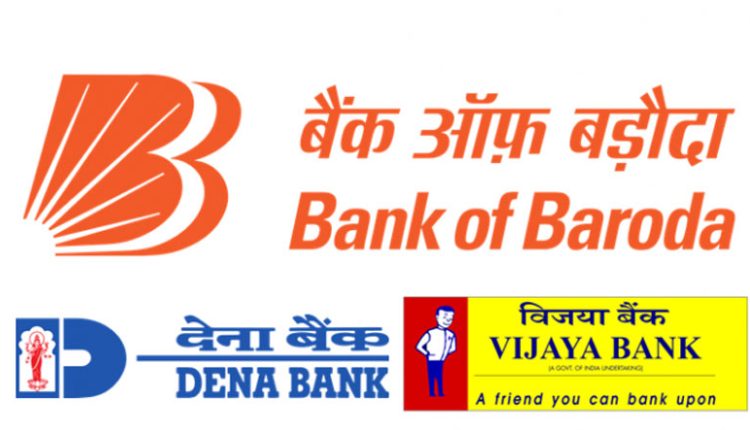Annual Banking Conference 2022
The RBI Governor, Shri Shaktikanta Das is the Chief Guest at the conference
Mumbai: Bank of Baroda (Bank), one of India’s leading public sector banks, organised the first edition of its Annual Banking Conference with the theme being “Banking Beyond Tomorrow” on Friday, July 22. Shri Shaktikanta Das, Governor, Reserve Bank of India was the Chief Guest at the conference and delivered the inaugural address.
With over 20 eminent speakers from within the banking and financial services industry and outside, the full-day conference features five stimulating and thought-provoking panel discussions covering Banking Beyond Tomorrow; New Frontiers in Financial Inclusion; Innovative Technologies and New Business Models for Digital Banking; ESG Finance and Tackling Climate Change, and ending with an Economists’ Roundtable.
Shri Sanjiv Chadha MD & CEO, Bank of Baroda said, “As we step into the post-Covid-19 era, we have the opportunity to debate on longer-term trends and steer the discussion towards identifying the contours of Banking Beyond Tomorrow. The other aspect that we have learnt over the last few years is that banks cannot do everything theMs.elves. They need to work with partners – partners who are increasingly embedded in core banking areas. The conference is therefore all about an outside-in perspective, and how we can define and shape the future of banks.”
The notable highlight of the event was RBI Governor’s inaugural address. He spoke about the macroeconomic backdrop, noting that India’s growth remains strong. He also mentioned that RBI will take adequate steps to ensure a ‘soft landing’ for the Indian economy. Notably, he defended the flexible inflation targeting approach of the MPC, highlighting that it ensures the stability of the overall ecosystem. He also noted that RBI is well positioned to weather any external shocks. He mentioned that spillovers from global policy tightening, ongoing geopolitical tensions, Covid-19 induced slowdown, and commodity price shock have impacted growth across economies. To reiterate India’s strong external position, the RBI Governor stated that unhedged ECBs account for only a small portion of the total debt, hence India is adequately insulated against foreign exchange risk.
On the regulatory front, the Governor pointed out that good governance and a sound risk management framework is essential for an efficient and well-functioning banking system. He emphasised how social media can increase customer penetration and used a tool for grievance redressal. He also flagged the need to recognise climate-related risks and incorporate them into business models.
The theme of the first session was Banking Beyond Tomorrow. Eminent panellist Ms. Arundhati Bhattacharya, Salesforce India raised an important point and suggested the need for creating end-to-end digital products. She also mentioned the need for automation of services for the efficient functioning of the entire banking system. Mr. Ashish Gupta, Credit Suisse said that customer activities should be through regulated entities to ensure KYC compliance and customer safety. Mr. Deep Gupta, Macquarie Asset Management noted that technology and green infrastructure are two of the most important emerging areas of financing. Mr. Rashesh Shah, Edelweiss Group opined that banks in the future will transform into hubs providing financial solutions.
Mr. Dilip Asbe from NPCI who joined the conference through video conferencing, in a fireside chat with Mr. Akhil Handa, Bank of Baroda highlighted the importance of digital infrastructure. He noted the success of UPI in the payment infrastructure. He also highlighted that rural will lead the way in the digital payment space growing at a 2x-4x pace.
The next session focused on financial inclusion. Answering the question of strengthening the movement of financial inclusion, panellist Mr. Amit Arora of World Bank’s suggestion was to collectively invest in 1) customer protection and grievance redressal and 2) financial health of households. Mr. Vikramaditya Singh Khichi of Bank of Baroda said that the Bank is punching much above its weight with a 15% share in PMJDY and the Bank is working on more products to further penetrate the rural and Agri markets. bob World already has onboarded over 20 million customers. Ms. Kalpana Ajayan, Women’s World Banking emphasised the need to focus on advocacy, gender-sensitive policies and making women more comfortable with technology. Ms. Sucharita Mukherjee and Kaleidofin spoke about the importance of account aggregators providing tailored credit solutions. Mr. Anil Gupta, MicroSave Consulting, the moderator, ended the session by stating that it is time to move from Jan Dhan to Jan SaMr.idhhi.
A special address was delivered by Mr. Harsh Wardhan Modi from J.P. Morgan through video conferencing. He pointed out that in the current scenario, inflation is sticky and global interest rates will remain high. Banks with the best total cost-to-asset ratio will gain long-term shares. Furthermore, in terMs. of digitisation, he highlighted that customer experience is becoming a prime driver of value creation in financial services. On cryptocurrencies, he pointed out that regulatory buy-in will be necessary for any form of money and payment system to gain scale.
The next session shed light on innovative technologies and new business models for digital banking. In this session, moderated by Bank of Baroda’s Chief Digital Officer, Mr. Akhil Handa, the conversation revolved around solutions-based services to enhance the digital outreach in the banking sector. Mr. Ajay Khurana, Bank of Baroda mentioned that micro-service-based architecture is better for enhanced customer experience. Further, he noted that Bank of Baroda’s data lake is ushering in new dimensions of analytics. Ms. Lizzie Chapman, ZestMoney spoke about complementarity between technology companies and banks wherein banks will bring stability and regulatory awareness. Pranav Arora, Accenture said that Open Banking is indeed a massive opportunity for all banks. Ms. Chetna G Sinha of Mann Deshi Bank agreed and further stated that the rural population is eager for digital financial solutions and that banks should pave the way.

